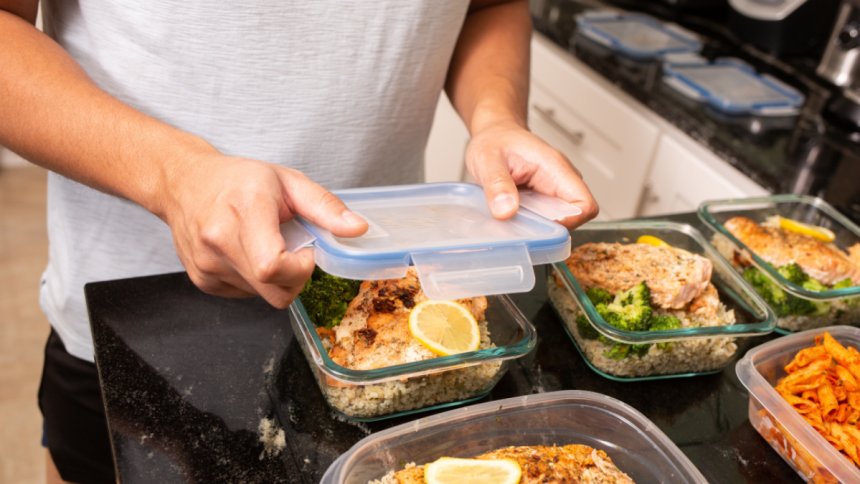Food waste is a major issue, but with a few smart strategies, it’s possible to cut down on waste, save money, and make the most of what you already have. From frugal shopping tips to innovative storage solutions, reducing food waste isn’t just good for your wallet; it’s great for the environment and your peace of mind. Here are five practical ways to minimize food waste at home and in emergencies, so you can live more sustainably without sacrificing comfort or quality.
Embrace Frugal Living While Staying Comfortable
One of the most effective ways to reduce food waste is by practicing frugal living, which naturally encourages you to buy only what you need and avoid excess. Adopting this mindset can help you focus on essentials, make better purchasing decisions, and ultimately reduce the amount of food that ends up in the trash. For example, planning meals in advance, buying in bulk when it makes sense, and properly storing perishable items can make a big difference in lowering grocery bills.
Frugal living doesn’t mean sacrificing comfort. Instead, it’s about finding the right balance between saving and enjoying what you have. By carefully planning your purchases and storing food correctly, you can enjoy a well-stocked fridge without the risk of items going to waste.
Stock Up on Freeze-Dried Meats for Emergencies and Everyday Use
One of the best ways to be prepared for emergencies and cut down on food waste at the same time is by keeping freeze dried meats in your pantry. Freeze-dried meats have an extended shelf life, and they retain their nutritional value and flavor, making them an ideal option for long-term storage. Because these meats don’t require refrigeration and can last for years when stored correctly, they’re perfect for emergency situations or as a backup for busy days when cooking from scratch isn’t possible.
Freeze-dried meats can be easily rehydrated and added to your favorite recipes, so you don’t have to worry about them going bad. They’re also lightweight and compact, which means they won’t take up much space in your pantry. For people looking to reduce waste, freeze-dried meats are an excellent option because they provide flexibility in meal planning.
Repurpose Leftovers Into New Meals
One of the simplest and most creative ways to reduce food waste at home is by repurposing leftovers into fresh, delicious meals. Instead of throwing out small portions or ingredients that didn’t make it into the original recipe, think about how you can reinvent them. For example, roast chicken from one night can be shredded and turned into tacos or a salad topping, while leftover vegetables can be added to a soup or stir-fry.
By repurposing leftovers, you get more out of each meal and avoid the common problem of letting food go bad in the fridge. This approach can even add more variety to your meals. Get creative and explore new recipes or combinations to make the most out of your ingredients. Turning yesterday’s dinner into today’s lunch is a simple, cost-effective way to cut down on waste while enjoying flavorful meals throughout the week.
Learn More Ways to Store Fresh Produce
Proper storage is another way to extend the life of your fruits and vegetables, helping you reduce waste and enjoy fresh produce for longer. Different foods have specific storage needs, so understanding where and how to keep each type of produce can make a huge difference. For instance, leafy greens stay fresh longer when covered in a damp cloth and kept cold, while potatoes and onions are best kept in a cool, dark place outside the fridge.
For items that ripen quickly, like bananas or avocados, consider storing them at room temperature until they’re ready to eat, then moving them to the fridge to slow down ripening. Learning these small tricks can help you make the most of your groceries and avoid having to toss produce that’s past its prime.
Make Use of Freezing to Preserve Extra Food
Freezing is one of the best tools available for reducing food waste because it allows you to save everything from prepared meals to individual ingredients for later use. Whether you have leftovers, surplus produce, or bulk purchases, freezing is a quick and easy way to preserve foods and ensure they don’t go to waste. Just make sure to store items in airtight containers or freezer bags to maintain freshness.
By freezing meals, you can save time on busy days and avoid the temptation of takeout. Freezing fruit, vegetables, or meats also means you can buy in bulk, which can be both cost-effective and convenient. Labeling and dating each item before freezing helps keep your freezer organized and makes it easier to rotate through items. By using your freezer strategically, you’re making the most out of your groceries, saving money, and reducing the amount of food that ends up in the trash.
Lynn Martelli is an editor at Readability. She received her MFA in Creative Writing from Antioch University and has worked as an editor for over 10 years. Lynn has edited a wide variety of books, including fiction, non-fiction, memoirs, and more. In her free time, Lynn enjoys reading, writing, and spending time with her family and friends.















